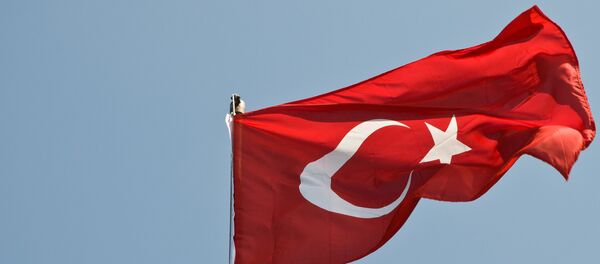According to Almassian, the current fight for Aleppo is not only part of the fight against Daesh, but is also a continuation of a years-long struggle by regional powers seeking to impose their influence over a strategically important city. Almassian pointed out that Aleppo has been a "gate" to the Ottoman Empire, to which Turkey is today's inheritor, to impose its influence over the Middle East.
Another major power seeking to impose control over the city, according to Almassian, is Saudi Arabia. The Saudis act through a cleric named Abdullah Muhaisini, who recently addressed insurgents, promising 72 virgins in the afterlife if they die in the service of the battle for Aleppo.
According to Almassian, the Saudis called for militants located in other parts of Syria, primary in Idlib, to join the fight and break the siege imposed by Syrian government forces.
"If we check the names of the dead militants we will realize that more than half of [them] are coming from Idlib and not from Aleppo. There are many multinational fighters… coming from other countries," he said.
A 1.5 kilometer gap in the siege that the militants opened was swiftly closed by a joint operation of Syrian forces, Hezbollah and Russian Air Force support. This is a strategic victory, Almassian says, as the militants had to pay a great price, with over 2,000 dead, to open this gap, which is the only possible way to deliver supplies and ammunition to the besieged extremists inside the city.
However there has been a change of rhetoric coming from Turkey recently. The new Prime Minister, Binali Yildirim, said that Turkey needs to revive its relations with its neighbors, as former Prime Minister Ahmet Davutoglu's policy of "zero problems with the neighbors" turned out, by Yildirim's definition, to be "zero relationships with the neighbors."
"They need their neighbors. At the end of the day they are not living on an island," Almassian said.
Syria, he says, is a strategic neighbor, as products from both Turkey and the West cannot reach Gulf markets without the involvement of Damascus.
Almassian notes that current predictions regarding Turkey's possible shifts in foreign policy are speculation. It is important to check how changes in Turkish rhetoric, following a meeting between Russian President Vladimir Putin and Turkish President Recep Tayyip Erdogan, will work out on the battlefield, as there are some 8,000 militants whose presence would not be possible without Turkish assistance, Almassian says.
"If the Syrian government succeeds in retaking Aleppo again, then [Erdogan's] neo-Ottoman dreams will fade away," Almassian said, noting that Russian support to Kurdish forces, which has led to Kurdish military and political rise, has effectively created a common ground between Turkey and Syria. The possibility of independence for Kurds can soften tensions between Ankara and Damascus.
Qatar, another power involved in the fight, is, according to Almassian, the main supporter of the so-called Al-Nusra Front terrorist group, which recently underwent a "rebranding" following pressure from both Doha and Washington, as the two desperately seek an alliance with a "moderate opposition" in Syria.
"There is no moderate opposition," Almassian says, as whatever the militant groups call themselves, all seek to impose sharia law over Syria in one form or another, be it a caliphate or Daesh.
The rebranding of Al-Nusra may allow the US to frame it as the moderate group it has been seeking, providing weapons and other support, thus creating their own "military wing" in Syria. Almassian warns, however, that whatever the name of the group, their behavior will remain genocidal to everyone who doesn't share their views, including Sunni Muslims.
Almassian observed that 70 percent of the Syrian government are Sunnis.
The US still fails to find a consensus with Russia over the fate of the Syrian government, which means that war will likely continue after the US presidential elections in November.
If Hillary Clinton becomes president, Almassian believes the war will significantly intensify, as a Clinton-led US will increase support to Qatar and Saudi Arabia. If Donald Trump comes to power, there is a possibility that he will cooperate with other actors on an international level, despite his controversial internal policy rhetoric.
Asked to provide the prognosis for a possible military solution of the five-year Syrian civil war, Almassian said that there are currently over 100,000 anti-government militants. Thus, even if interested parties cut all their support to the militant groups, it will take a couple of years to dismember their organization through the use of military force.





